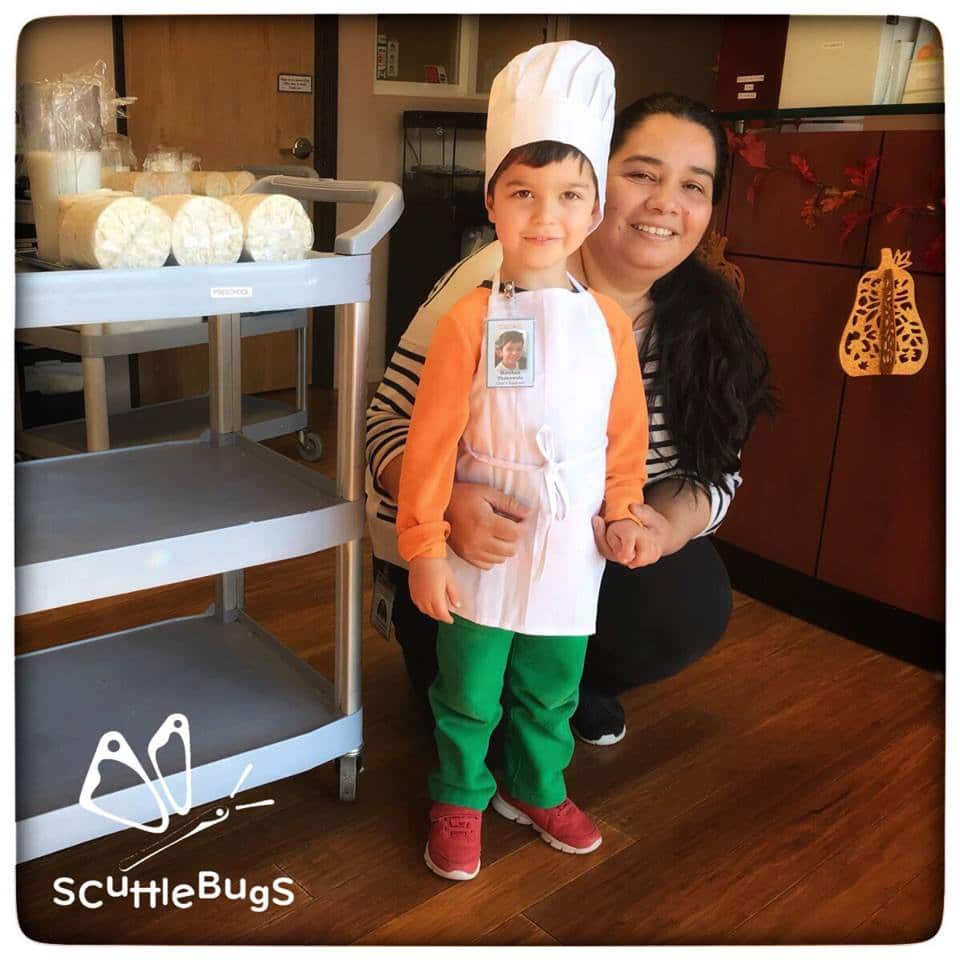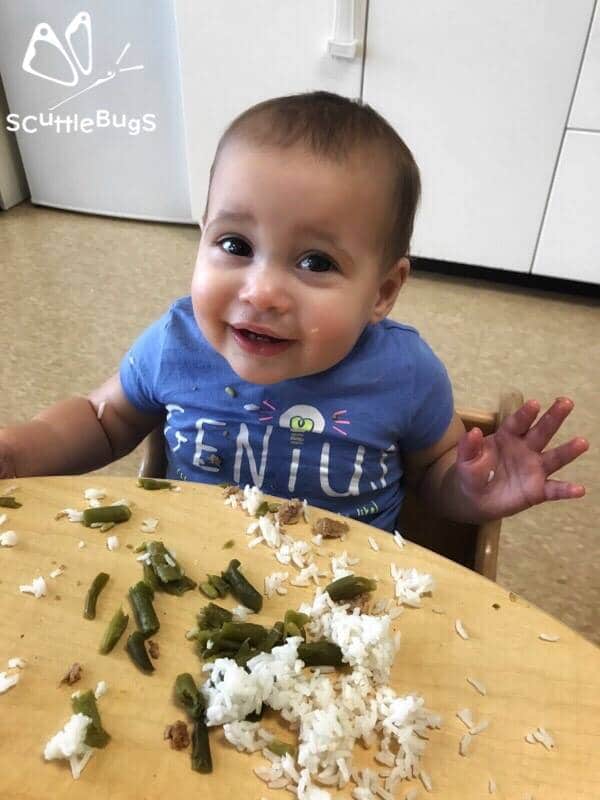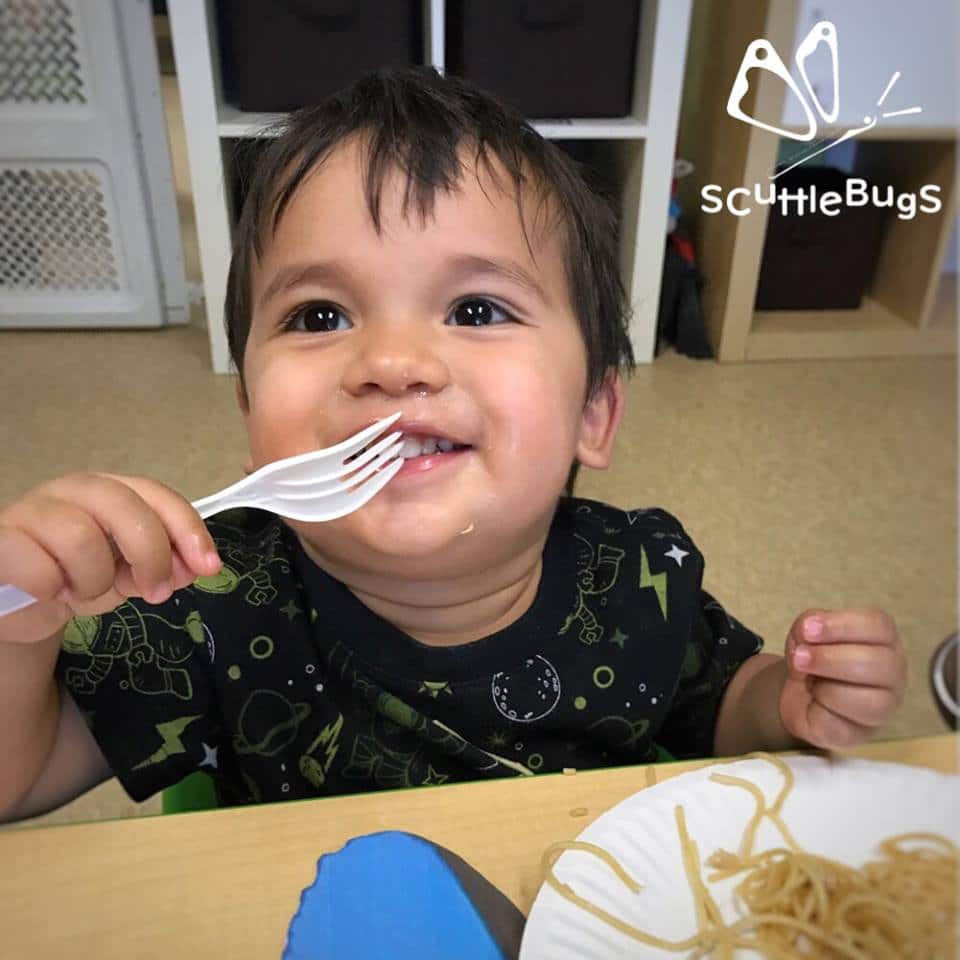Here at ScuttleBugs, we are fortunate to have many amazing eaters thanks to our beloved cook, Ms. Joana. We have heard countless stories of children going home and asking for “Ms. Joana’s spaghetti” or “Ms. Joana’s peas”. However, this isn’t always the case. Children entering child care for the first often don’t eat much the first few weeks, as they are accustomed to the tastes of home cooking. Also, some children just seem to have an aversion to food…
This is one of the biggest concerns I, as a professional in Early Childhood Education, have heard from parents. So what causes picky eating and what can we do to alleviate it?


To take on this topic, we return to the age-old debate, nature vs. nurture. The fact of the matter is that both play a part. Parents, you can do everything possible to introduce various foods and your little one might still turn his or her nose up at those leafy greens. The important thing to know is that it is not your fault!
There are a few factors that affect a child’s eating habits. First of all, picky eating is a normal part of development. Children can go from loving to hating (and then loving, again) a specific food in matter of weeks! While it may be frustrating, this is no reason for concern. At the toddler and preschool age, children are learning to control their bodies and their surroundings. The foods that they choose to love and hate is just one way in which they are expressing their control.
Additionally, eating habits have been correlated with temperament. A recent study shows that infants who tend to show less interest in new stimuli (i.e. new toys) tend to show less acceptance of new foods, as well. There is even evidence to show that picky eating is biological. Certain genes may be related to bitter taste perception, thus children that are more sensitive to bitterness may be more likely to be picky eaters.
All hope is not lost! Although there are these factors that we cannot change, there is a lot we can do to promote lasting healthy eating habits and prevent picky eating in the future. Here are some tips to stop/prevent picky eating that we, at ScuttleBugs, practice in the classroom.


- Set a good example: If you eat a variety of healthy foods, your child is more likely to be open to healthy foods.
- Respect your child’s appetite: Do not force your child to eat meals and snacks, as they may just not be hungry. Your child might associate mealtime with anxiety and frustration or become less aware of bodily cues (understanding when he or she is hungry or full).
- Don’t cater to your picky eater: Make and serve one meal. Your child may not be interested in this meal this time, but keep trying to offer it and he or she will come around to it. Cooking a separate meal for your child might reinforce the behavior. He or she will hold out for the food they want if they think you will cave.
- Make it fun and be creative: Serve veggies with a dip or sauce; cut foods into fun shapes with cookie cutters; serve bright colored foods. If the meal is fun, your child will be much more interested.
- Don’t beg or bribe: if you offer your child a bribe, they will come to expect something every time. Begging will put you and your child in a power struggle and remember, all your little one wants is control.
- The One-Bite Rule: This is a tip that I have always implemented in the classroom. They don’t have to eat all of it, but they must taste it. How will they know they don’t like it until they try it? If they have a bite and they don’t like it, then no worries from there.
